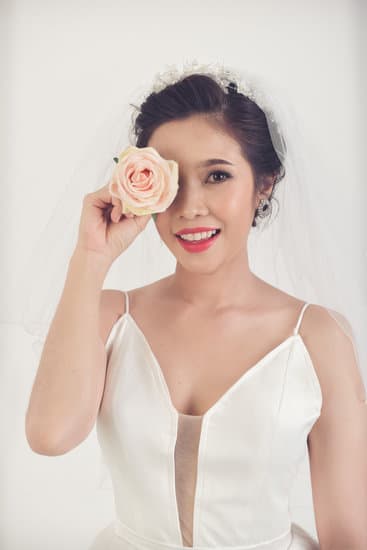Attending an Indian wedding is a wonderful experience filled with vibrant colors, traditional rituals, and beautiful attire. One common concern that many guests may have is whether it’s appropriate to wear white to such a culturally significant event. In this article, we will explore the significance of colors in Indian weddings and the traditional attire worn by guests, as well as the cultural implications of wearing white.
Colors play a significant role in Indian weddings, with each color holding its own unique symbolism. White, in particular, holds special cultural and religious connotations in the context of Indian weddings. It is important to understand the deeper meaning of this color and how it relates to the overall atmosphere of the event.
As we delve into this topic, we will also discuss the significance of the bride’s attire, particularly her red and gold ensemble, and how it influences the choice of attire for guests. Additionally, we will explore the potential cultural implications of wearing white to an Indian wedding and emphasize the importance of respecting traditions when choosing our attire for such occasions.
Understanding the Symbolism of White in Indian Culture
In Indian culture, colors hold significant meaning, especially in the context of weddings. Each color is symbolic and represents different aspects of life, with white being no exception. Understanding the cultural and religious connotations of the color white can provide insight into whether it is appropriate to wear this color as a guest to an Indian wedding.
White holds various meanings in Indian culture, one of which is associated with mourning and funerals. It is traditionally worn by individuals grieving the loss of a loved one. In Hinduism, white also represents purity, peace, and spirituality. Additionally, it is often donned during religious ceremonies and rituals. Therefore, wearing white to an Indian wedding can inadvertently convey inappropriate or unintended messages due to these cultural associations.
Moreover, the significance of the bride’s attire further emphasizes the potential cultural implications of wearing white to an Indian wedding. The bride typically wears vibrant reds and golds, symbolizing prosperity, fertility, and happiness in the marriage. By choosing to wear white as a guest, there can be an inadvertent dissonance with the celebration of joy and new beginnings that the traditional bridal attire represents.
To navigate this cultural sensitivity and show respect for Indian traditions, guests can consider alternative attire options that are culturally appropriate for weddings. By opting for colors such as vibrant pinks, blues, oranges or rich jewel tones like emerald green or deep purple, guests can honor the significance of colors in Indian culture while still embracing their own personal style.
Ultimately, understanding the symbolism behind each color in Indian culture enables guests to make informed decisions about their attire for an Indian wedding while respecting traditional customs and beliefs.
The Significance of the Bride’s Attire
In Indian culture, wedding attire holds great significance, with colors playing a crucial role in conveying meaning and tradition. While the bride is adorned in vibrant reds and golds, guests are often left wondering about the appropriateness of wearing certain colors, particularly white. The question “Can I wear white to an Indian wedding?” is a common one, and it stems from the need to respect and honor cultural traditions.
The color white has different connotations in various cultures, and in Indian culture, it is traditionally associated with mourning and funerals rather than celebrations. White is often worn by individuals attending somber events or religious ceremonies that mark the passing of a loved one. This cultural understanding of white can create confusion when considering attire options for an Indian wedding.
Guests should be mindful of the symbolism behind the bride’s red and gold attire when deciding on their own outfits for an Indian wedding. The bride’s clothing symbolizes purity, fertility, and prosperity. Red is considered an auspicious color in India and symbolizes love, passion, and power.
Gold is associated with wealth and prosperity. When juxtaposed against this rich cultural backdrop, wearing white as a guest may be perceived as inappropriate due to its contrasting associations with mourning rather than celebration.
To show respect for the significance of colors in Indian weddings while still looking stylish and respectful, guests can consider alternative attire options that honor tradition while allowing personal expression. Some appropriate alternatives to wearing white can include vibrant jewel tones such as deep purples, rich blues, or elegant emerald greens.
Additionally, guests can opt for traditional Indian clothing such as sarees or kurtas in bright colors that complement the festivities without overshadowing the bride’s attire. Ultimately, understanding and respecting cultural nuances will enhance the guest’s experience while celebrating this joyous occasion.
Cultural Sensitivity
When attending an Indian wedding, it is important to be mindful of the cultural and religious significance attached to certain colors, especially white. In Indian culture, white is often associated with mourning and funerals, making it a color that symbolizes death and loss. As a result, wearing white to an Indian wedding can carry potentially negative connotations and may be perceived as disrespectful or inconsiderate.
Understanding the Cultural Symbolism of White in Indian Culture
In Hindu traditions, white is commonly worn at funerals and during periods of mourning. It is believed that wearing white during festive occasions like weddings can bring bad luck or negative energy to the event. Additionally, in some regions of India, widows are expected to dress only in white as a sign of their perpetual mourning. Therefore, the cultural implications of wearing white should not be taken lightly when attending an Indian wedding.
The Significance of Respecting Traditions
Attendees should understand and respect the significance of traditional attire worn by the bride and groom at an Indian wedding. The bride’s red and gold attire holds enormous cultural importance as it symbolizes prosperity, fertility, and joy. Therefore, guests are encouraged to honor these traditions by choosing attire that aligns with the celebratory nature of the event while showing respect for the couple’s customs.
It is essential for guests to acknowledge and appreciate the cultural heritage of the couple getting married. By being sensitive to these customs and traditions, attendees can ensure that they are honoring and respecting the significance attached to every aspect of the wedding ceremony. This acknowledgment also extends to attire choices, including refraining from wearing white in order to avoid any inadvertent negative implications on such a special occasion.
Alternatives to White
When attending an Indian wedding, it is important to be mindful of the cultural significance of colors and attire. While wearing white to an Indian wedding is generally not advised, there are numerous alternative options that can ensure you are appropriately and respectfully dressed for the occasion.
Suggestions for Women
For female guests, colorful attire is highly encouraged. Sarees in vibrant hues such as red, green, blue, or pink are a popular choice. Additionally, lehengas and Anarkali suits in rich, jewel-toned colors can also make for a stunning and culturally respectful ensemble. It’s important to opt for outfits that are modest and elegant, ensuring that they adhere to traditional Indian clothing customs.
Suggestions for Men
For male guests, traditional Indian attire such as a kurta paired with churidar or trousers is a suitable option. Richly colored kurtas in shades like royal blue, maroon, or emerald green are considered both tasteful and culturally appropriate. Adding traditional accessories such as a dupatta or turban can further elevate the outfit while showing respect for Indian customs.
Accessories and Footwear
When choosing accessories and footwear to pair with your outfit, consider incorporating traditional Indian elements such as jhumka earrings, bangles, or mojari shoes. These authentic touches not only complement your attire but also demonstrate your appreciation for Indian culture.
By opting for colorful and culturally respectful attire as a guest at an Indian wedding, you can contribute to the festive atmosphere while also honoring the traditions and customs of the occasion. Choosing alternative options to white ensures that you are dressed in a manner that is considerate of the cultural significance of colors in the context of Indian weddings.
Examples of Appropriate Guest Attire
Wearing white to an Indian wedding is generally not recommended, as it can be seen as disrespectful due to the cultural and religious significance of the color in Indian culture. In Indian weddings, white is traditionally associated with mourning and funerals, so wearing this color to a joyous occasion like a wedding may be deemed inappropriate. It’s important for guests to understand and respect the symbolism of colors in Indian culture when choosing their attire for a wedding celebration.
Instead of opting for white, guests can consider wearing vibrant and colorful outfits that reflect the festive atmosphere of an Indian wedding. For women, sarees or lehengas in bright colors like red, pink, orange, or blue are popular choices.
These traditional garments are often embellished with intricate embroidery, beads, and sequins, creating a stunning and culturally appropriate look for the occasion. Meanwhile, men can choose from an array of colorful options such as a kurta pajama or sherwani paired with coordinating accessories like turbans or stoles.
Attending an Indian wedding provides an opportunity for guests to embrace the rich cultural heritage and traditions associated with these celebrations. By selecting attire that aligns with the cultural expectations and significance of colors in Indian weddings, guests can show their respect while also participating in the joyous festivities.
| Appropriate Guest Attire Options | Description |
|---|---|
| Women’s Saree or Lehenga | Avoiding white and choosing vibrant colors such as red, pink, orange, or blue; embellished with traditional embroidery and detailing. |
| Men’s Kurta Pajama or Sherwani | Selecting colorful ensembles with coordinating accessories like turbans or stoles; embracing traditional Indian attire. |
Tips for Navigating Dress Codes
it’s important to consider the cultural significance of colors in Indian culture, particularly in the context of weddings. In Indian culture, white is traditionally associated with mourning and funerals, so wearing white to a joyful occasion like a wedding may be considered insensitive or inappropriate.
Instead of white, guests attending an Indian wedding may opt for vibrant and colorful outfits such as saris, lehengas, or suits in bold and celebratory colors. Women often choose bright hues like red, orange, pink, or green for their attire, while men may wear sherwanis or kurtas in rich tones. These colorful ensembles not only reflect the joyous nature of the occasion but also show respect for the cultural traditions surrounding Indian weddings.
It’s also important for guests to pay attention to any specific dress codes provided by the hosts of the wedding. Some Indian weddings may have a particular color theme or dress code that guests are expected to follow. By adhering to these guidelines and showcasing attire that aligns with the cultural traditions of the wedding, guests can demonstrate their understanding and respect for the customs and rituals involved in the celebration.
| Attire | Traditional Color Options |
|---|---|
| Sari | Red, Orange, Pink, Green |
| Lehenga | Blue, Purple, Gold, Yellow |
| Sherwani/Kurta | Navy Blue, Maroon, Mustard Yellow |
Conclusion
In conclusion, attending an Indian wedding is a unique and enriching experience that offers a glimpse into the rich cultural heritage of India. As we have explored in this article, the significance of colors and attire in Indian weddings is deeply rooted in tradition and symbolism.
It is important to recognize and respect these cultural nuances, including the traditional significance of the color white. While white may be associated with purity and peace in some cultures, it holds different connotations in the context of Indian weddings.
When considering what to wear as a guest to an Indian wedding, it is crucial to take into account the cultural sensitivity surrounding attire choices. As mentioned earlier, wearing white to an Indian wedding
Ultimately, when attending an Indian wedding, guests should embrace the opportunity to celebrate and participate in a meaningful cultural event. By choosing culturally respectful attire options and adhering to specific dress codes, guests
Frequently Asked Questions
Is It Okay to Wear White at Indian Wedding?
It is not traditionally appropriate to wear white to an Indian wedding, as white is associated with mourning in Indian culture. It is best to choose vibrant and colorful outfits to celebrate the joyful occasion.
Is There a Color You Shouldn T Wear to an Indian Wedding?
In Indian weddings, it is best to avoid wearing black or white, as both colors are associated with mourning and are considered inappropriate for celebratory events. Instead, opt for bright and festive colors to show respect for the couple and their families.
Is It Impolite to Wear White to a Wedding?
Wearing white to a wedding can be seen as impolite in many cultures, as it is often associated with mourning or funerals. It can be perceived as insensitive or disrespectful, so it’s best to choose more cheerful and colorful attire for such occasions.

I have been involved in marriages for over 20 years helping couples and singles understand more about them.





